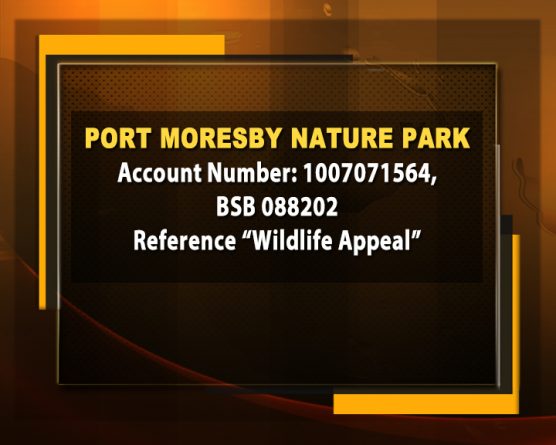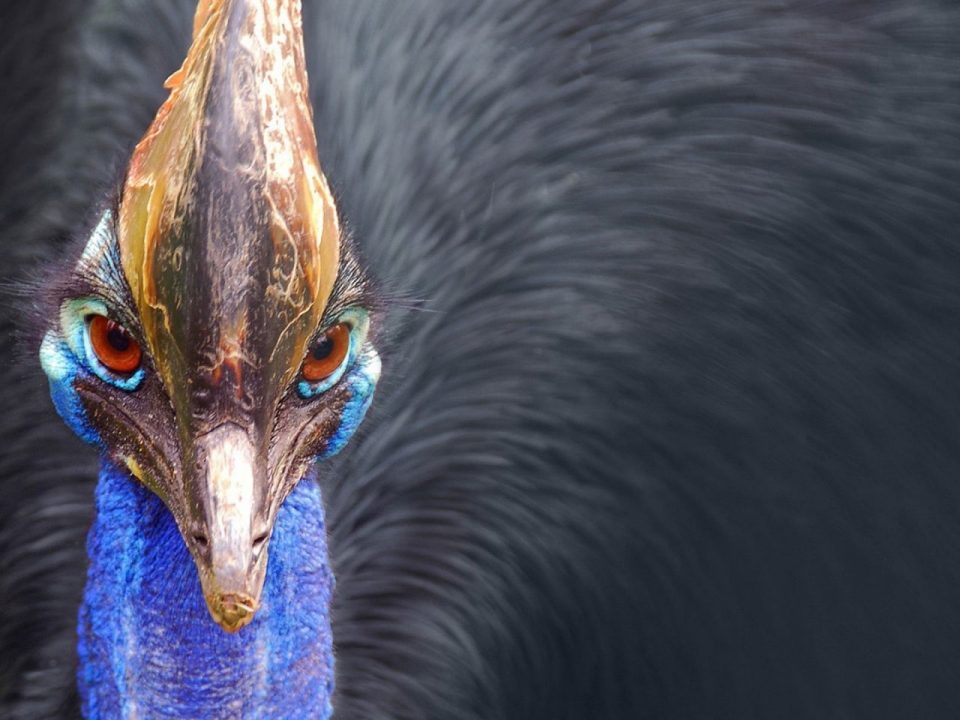Without cassowaries, our rain forests would be a very different place. Cassowaries have been recorded eating over 238 species of plants; they prefer fallen fruit to other food, but will also eat small vertebrates (such as snails and frogs, small birds and eggs), invertebrates, fungi, carrion and plants.
These huge birds are the ONLY animals capable of distributing the seeds of more than 70 species of trees whose fruit is too large for any other forest dwelling animal to eat and relocate.
Cassowaries are also capable of eating fruits and seeds that would be toxic to other species. Their digestive system (they have an unusual combination of stomach enzymes), short intestines, and highly active liver, and may help to protect them from absorbing a harmful level of toxins from some of the fruits they eat.
Cassowaries swallow fruit whole, digesting the pulp, and passing the seeds unharmed in large piles of droppings, distributing them over large areas throughout the rain forest. A ready-made fertilizer, the droppings helps many kinds of seed to grow. Other animals sometimes feed on the seeds in cassowary droppings, helping to distribute them further.
The rain forest would be a very different place without them. They play an important role in maintaining the diversity of the rain forest; considered a ‘keystone species’ because of their critical role in maintaining the ecological balance of the rain forest.
The Port Moresby Nature Park understands the danger these animals are in and have been raising awareness on their importance in the wildlife.
“Cassowaries play an important role in the environment as a ‘rain forest gardener’ and we encourage and educate our visitors by raising awareness on the importance of the cassowary’s role in rain forest vegetation,” says Ishimu Bebe.
‘Protecting cassowary habitat and food plants benefits many other rain forest plants and animals”.
The Port Moresby Nature Park will be celebrating the World Cassowary Day on Saturday 26th September and would like to invite Port Moresby city residents to join them.
September 26 is celebrated every year as the ‘World Cassowary Day’ to draw international attention to the reasons Cassowaries are globally important and need to be protected.
“I would like to encourage the community in NCD to come out to the park at our Rainforest Retreat Area and learn about how important they are to our environment,” says Park’s CEO Michelle McGeorge.
Ms McGeorge also extends her gratitude to those who have supported Nature Park during this COVID-19 pandemic.
“With your help, Nature Park has been able to continue with the conservation and research efforts, as well as the care pf the 550+ wildlife residents,” says McGeorge.
The Nature Park is currently running a Wildlife Appeal to raise much needed support to help the Park continue to care for its animals and maintain essential operational services.
Donations can be made directly to:

The cassowaries are rarities, very large flightless birds in the genus Casuarius native to the tropical forests of Papua New Guinea, the Island of New Guinea and north-eastern Australia. They come from the same family as emu, rhea, kiwi and ostrich.
The most common of these, the Southern Cassowary, is the third tallest and second heaviest living bird, smaller only than ostrich and emu. The two species are the Northern Cassowary (Casuarius unappendiculatus) and Dwarf Cassowary (Casuarius bennetti), which are only found in Papua New Guinea.
In Papua New Guinea, the cassowary is highly regarded in traditional myths as a source of life and spiritual energy. However, it is an endangered species and its future is uncertain.


